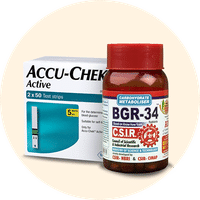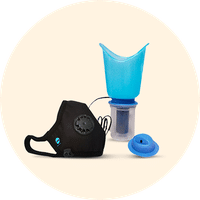Rs.562for 1 bottle(s) (30 tablets each)
food interaction for Lubrijoint Tablet
alcohol interaction for Lubrijoint Tablet
pregnancy interaction for Lubrijoint Tablet
lactation interaction for Lubrijoint Tablet
food
alcohol
pregnancy
lactation
Lubrijoint OD Tablet may be taken with or without food, but it is better to take it at a fixed time.
None
None
CAUTION
Caution is advised when consuming alcohol with Lubrijoint OD Tablet. Please consult your doctor.
CAUTION
Information regarding the use of Lubrijoint OD Tablet during pregnancy is not available. Please consult your doctor.
CONSULT YOUR DOCTOR
Information regarding the use of Lubrijoint OD Tablet during breastfeeding is not available. Please consult your doctor.
CONSULT YOUR DOCTOR
SALT INFORMATION FOR Lubrijoint 1500mg Tablet
Glucosamine Sulfate Potassium Chloride(1500mg)
Lubrijoint tablet uses
{med_name} is used in osteoarthritis.
How lubrijoint tablet works
Lubrijoint OD Tablet is a proteoglycan synthesis stimulator. It works by building cartilage (soft connective tissue around the joints) leading to joint repair. It also lowers pain and inflammation (swelling).
Common side effects of lubrijoint tablet
No common side effects seen
SUBSTITUTES FOR Lubrijoint Tablet
1 Substitutes
1 Substitutes
Sorted By
 Rs. 233.40pay 20% more per Tablet
Rs. 233.40pay 20% more per Tablet
Expert advice FOR Lubrijoint Tablet
- Glucosamine Sulfate Potassium Chloride is used in the treatment of osteoarthritis.
- Inform your doctor if you have a history of being allergic to shellfish or to glucosamine.
- You will be asked to monitor your blood glucose level while taking Glucosamine Sulfate Potassium Chloride.
- Inform your doctor if you are taking any blood thinners like warfarin or if you have any scheduled surgery.
- Let your doctor know if you are pregnant or breastfeeding.
Frequently asked questions FOR Lubrijoint 1500mg Tablet
Glucosamine Sulfate Potassium Chloride
Q. What is Lubrijoint OD Tablet used for?
Lubrijoint OD Tablet is used to help relieve symptoms of mild to moderate osteoarthritis of the knee. It helps improve joint comfort over time. It usually takes several weeks before people notice the benefit.
Q. Who should not take Lubrijoint OD Tablet?
Individuals should not take Lubrijoint OD Tablet if they are allergic to glucosamine, any excipient, or shellfish.
Q. Can Lubrijoint OD Tablet affect my blood sugar if I have diabetes?
People with diabetes should be cautious because Lubrijoint OD Tablet can require closer monitoring of blood sugar and insulin when treatment starts. Your doctor may check your glucose more frequently.


















